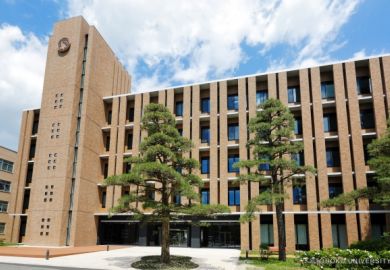At a regular meeting at Times Higher Education HQ last week, colleagues seemed a bit thin on the ground – it’s rare that everyone’s in the country, let alone the building, but there were definitely fewer than normal.
Where was everyone, I asked? A couple were in Africa, travelling first to Ghana (for our Africa Universities Summit) then on to Cape Town (for the Going Global conference); another was in Singapore, where we now have an office working with universities across Asia on data benchmarking; a fourth was in Kazakhstan, delivering a seminar on institutional performance; a fifth was looking rather tired, having just flown back from the US.
Later, I flicked through some recent issues of THE. Last week’s cover story was a critical analysis of Germany’s Excellence Initiative; the week before it was China’s involvement in African higher education; the issue before that we looked at the curtailment of academic freedom in Turkey; and this week we hear different academic perspectives on the challenges facing scholars in fevered and fractured modern India.
I could go on, but I’m already labouring the point – higher education is global in a way that most other sectors can only dream of, and for those of us lucky enough to be immersed in it, the pace of change, and the range of issues and opportunities faced by those studying, teaching, doing research, leading institutions or setting national policy is almost limitless.
This globalisation takes many forms. There is the current of students flowing from East to West; there are the peripatetic academic careers; there are the research collaborations that cross national boundaries; and there are the institutional forays into global partnerships and, occasionally, overseas campuses.
Many of these trends are being driven at a micro level: individuals taking personal decisions about where to work and study, or who to collaborate with. Others exist on a macro scale: the funding schemes that prioritise international collaborations, or government initiatives that incentivise or discourage brain gain and drain. Sitting between the two are the universities themselves, which also have a crucial role to play in setting the pace and priorities.
The way in which national approaches stack up is unpicked by a new analysis from the British Council.
The study is based on a detailed review of the policies affecting international higher education in 26 countries, evaluating and comparing over 100 pieces of legislation and national strategies to determine how approaches vary.
Among its conclusions is that, taken as a whole, Germany and Malaysia have the “most balanced” approach to international higher education (assessed against 37 indicators), with the UK and Australia also performing well.
An area of widespread weakness is quality assurance – reflecting how for many countries, the focus in transnational and international higher education has been on delivering scale.
But for those that perform well on this measure, including the UK, it’s a crucial advantage.
As our World Reputation Rankings 2016, also out this week, make clear, university “brands” – their prestige and profile – are hard-earned and easily tarnished.
Yes, higher education is changing, and competition is fierce and global. But quality and integrity are a constant as the only foundations on which universities, and national systems, will prosper.
Register to continue
Why register?
- Registration is free and only takes a moment
- Once registered, you can read 3 articles a month
- Sign up for our newsletter
Subscribe
Or subscribe for unlimited access to:
- Unlimited access to news, views, insights & reviews
- Digital editions
- Digital access to THE’s university and college rankings analysis
Already registered or a current subscriber?



